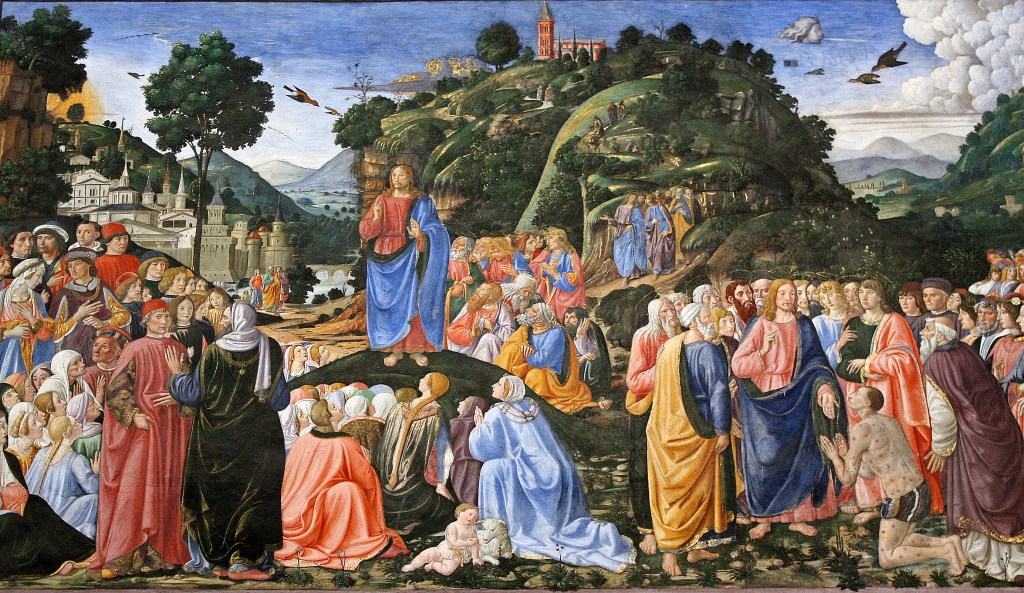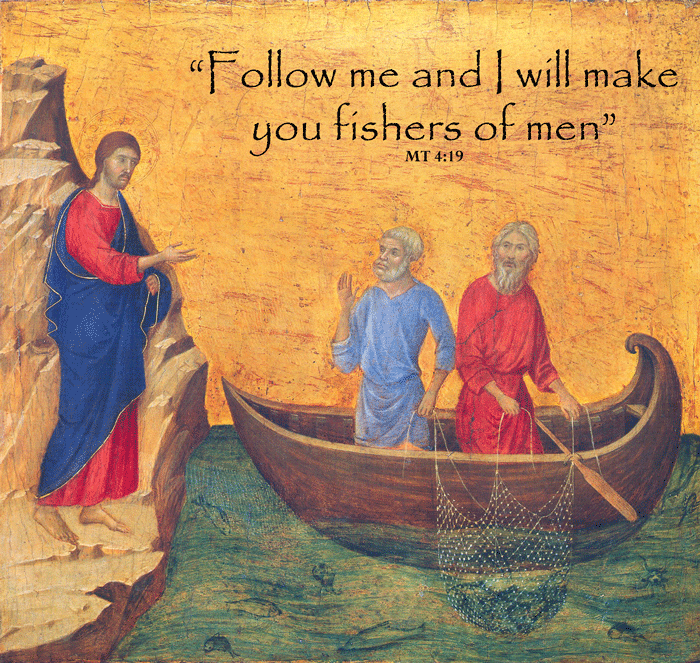A Sermon Delivered on March 1, 2026 by the Rev. Dr. Patrick H. Wrisley.
Our New Testament reading on this Second Sunday of Lent is a text most of us know well, perhaps too well. Yet it serves as a primer for Christianity 101, a reminder we all need from time to time as we journey toward the Cross and Easter.
There are three primary characters in our story this morning. First, there is Nicodemus; he is a Pharisee, the equivalent of a Ph.D. in religious studies, who spent his life studying Torah and teaching his fellow Jews. Next, there is Jesus. And finally, there is you and I, the ones overhearing this whole conversation. We are drawn into the whole conversation in verse 11 when John shifts his narrative voice. You see, beginning in verse 11, he uses the second person plural and has Jesus speaking directly to us.
Listen carefully to what Jesus is saying. May the Holy Spirit give each of us ears to hear this familiar scripture anew. Hear the Word of the Lord from John 3:1-17.
John 3:1-17
Now there was a Pharisee named Nicodemus, a leader of the Jews. He came to Jesus by night and said to him, “Rabbi, we know that you are a teacher who has come from God; for no one can do these signs that you do apart from the presence of God.”
Jesus answered him, “Very truly, I tell you, no one can see the kingdom of God without being born from above.“
Nicodemus said to him, “How can anyone be born after having grown old? Can one enter a second time into the mother’d womb and be born?“
Jesus answered, “Very truly, I tell you, no one can enter the kingdom of God without being born of water and Spirit. What is born of the flesh is flesh, and what is born of the Spirit is spirit. Do not be astonished that I said to you, “You must be born from above. The wind blows where it chooses, and you hear the sound of it, but you do not know where it comes from or where it goes. So it is with everyone who is born of the Spirit.“
Nicodemus said to him, “How can these things be?“ Jesus answered him, “Are you a teacher of Israel, and yet you do not understand these things? Very truly, I tell you, we speak of what we know and testify to what we have seen; yet you do not receive our testimony. If I have told you about earthly things and you do not believe, how can you believe if I tell you about heavenly things? No one has ascended into heaven except the one who descended from heaven, the Son of Man. And just as Moses lifted up the serpent in the wilderness, so must the Son of Man be lifted up, that whoever believes in him may have eternal life. For God so loved the world that he gave his only Son, so that everyone who believes in him may not perish but may have eternal life. Indeed, God did not send the Son into the world to condemn the world, but in order that the world might be saved through him.“
As careful readers of the text, we learn three critical lessons about what it means to call oneself a Christian in today’s world. The first lesson is this: Jesus Cannot Afford Hidden Followers.
John gives us two crucial facts immediately: Nicodemus is a prominent religious scholar and official, and Nicodemus is afraid to publicly show his faith in Jesus. He came by night. He came when the streets were clear, when he wouldn’t be noticed, when everyone else was winding down for bed. He came in secret, protecting his reputation. Nicodemus came to Jesus when it was convenient for him to do so.
Bless Nicodemus’ heart, and I truly mean that in the sincerest way. I want to cheer him on, but his late-night skulking around does not come across well. Fortunately, Nicodemus begins living his faith-life more openly and moves it into the daylight in his two later appearances later in John’s gospel.
The unfortunate reality is that the Church today is full of Nicodemus-like followers; the fact is, it always has been. John Calvin in the sixteenth century referred to Nicodemites, i.e. Christians who sympathized with the Reformation but were reluctant to be publicly identified with it. Closet Christians. You could not recognize them as Christians unless they wore a sign announcing it.
The church today cannot afford nighttime, hiding-in-the-shadows followers of Jesus Christ. It forces us to ask ourselves: Is my faith out in the open where others can see what I believe in my daily living? Can people tell I am a follower of Jesus? Am I a nighttime follower like Nicodemus? Am I a Nicodemite?
If the first lesson is that Jesus and the Church can ill-afford in-name-only hidden followers of the Way, the second lesson is our salvation stems from God’s initiative, not ours. Salvation is a precious gift given to us by God’s gentle hand as opposed to being hastily grasped by our desire. Verse 3 is too often translated “born again” when the ancient word equally means “to be born from above.” This translation better fits the context of their table talk. Eugene Peterson translates verse 3 in The Message as, “Unless a person is born from above, it’s not possible to see that I am pointing to God’s Kingdom.”
Western Christianity has long pushed the belief that if we simply give mental assent to good doctrine and decide Jesus is God’s Son, then we earn eternal life. In other words, our present-day healing, our eternal destiny rests upon our saying whether we mentally assent in Jesus. Friends, if it is up to you or me to determine our own salvation, it makes a mockery of Jesus and the Cross. If our salvation boils down to my individual decisions, then why did Jesus come in the first place? Why did he have to die and rise again if it is all up to you and me saying, “I believe”?
Jesus tells Nicodemus it is not following the minutiae of Jewish Law that earns God’s love; he is trying to let Nicodemus know that God’s love has already been extended! All Nicodemus has to do is be an open vessel for God to pour the Spirit into him. Think of it like this: We are shy, timid teenagers lining the gym wall at a middle school dance. Jesus takes the initiative to come up to us and asks us to get out onto the dance floor; shall we let ourselves go and dance?
The third lesson in our basic understanding of what it means to call ourselves “Christian” is that Kingdom and Realm of God is both a future hope and a present reality. Jesus speaks of salvation in the present tense. We tend to associate eternal life with only what happens to us when we die; in scripture however, we learn eternal life is both a present and future reality. It is a much richer than we typically make it out to be. You see, in John’ gospel, the word for faith is a verb, not a noun. As a noun, faith refers to having ownership of something specific. Faith as a verb means pledging fidelity and loyalty to someone which requires present-tense action, effort, and a demonstration of that fidelity.
So, for example, when a couple stands before the church and pledges their loyalty and fidelity to each other at a wedding, it signifies they will from that moment forward live a new life. It means they detach from their families of origin and begin a new family of their own. It means they no longer date others but pour everything into this new relationship. Their lives are now bound together; when something happens to one, it affects them both. This is what Christian faith means as a verb: It is living devotedly to another through active reciprocating love. For Nicodemus’ quest for eternal life, it simply means he must take all that religious knowledge stuck in his head and place it in his heart and then reach across the table separating them and grab Jesus’ hand as they take an adventure together.
Another way our text teaches that salvation is a present reality is the word for salvation itself. For too long the church has equated salvation with “not going to hell.” It is time we reclaim the larger meaning. Salvation also means to become healed, restored, and made whole and complete once more. When we understand salvation this way, we hear Jesus’ words as: God did not send the Son into the world to condemn the world, but in order that the world might become healed and made whole again.”
This is what the esoteric reference to Moses lifting the bronze serpent up in the desert means. In Numbers 21, we read how poisonous vipers kept biting and killing the wandering Hebrews. God told Moses to make a bronze staff shaped like a serpent, and if any Hebrew got bit, they simply had to look at the snake-shaped staff Moses held and they were at once healed and made whole once more.
For Nicodemus, for you and me, healing, wholeness, and restoration all occur in the present moment. When we pledge fidelity to Jesus and walk in a way that shows our loyalty to him, our healing and restoration begins immediately.
So, what does this mean for us today? It means we are urged to step out of the shadows and into the light of discipleship. It means we accept that God has taken the initiative in our healing and that we need only respond with open hearts and lives. And it means we live into the present reality of God’s Kingdom and Realm right this moment, proving our fidelity to Christ by bringing healing, restoration, and wholeness to our families, our neighbors, our colleagues, our government and even to this home of ours we call Earth.
The question Nicodemus came with to Jesus in the night is still the question we must answer in the daylight: Will we be born from above and open the windows of our hearts and let God’s Spirit blow into us like warm spring winds flushing out the vestiges of winter in our lives? In the name of the Father, the Son, and the Holy Spirit. Amen.
© 2026 by Patrick H. Wrisley, Pastor, First Presbyterian Church of Glens Falls, 8 West Notre Dame Street, Glens Falls, NY 12801. Sermon manuscripts are available for the edification of members and friends of First Presbyterian Church of Glens Falls, New York and shall not be altered, re-purposed, published, or preached without permission. All rights reserved.




